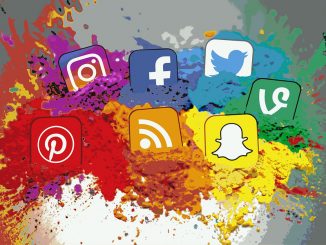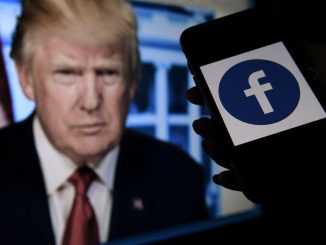
Directed by Laura Poitras, CitizenFour exposes the massive surveillance by the National Security Agency (NSA). After receiving anonymous and encrypted e-mails about illegal surveillance operations by the NSA, Poitras, alongside reporters Ewen MacAskill and Glenn Greenwald, decided to fly to Hong Kong, China, to interview and expose one of the most troubling secrets government operations that put the privacy of citizens at risk. In a world where communications by people are done through technological devices, the revelations that interactions are monitored and intercepted cast a new light on how freedom is perceived. Through the revelations by Edward Snowden in the film, the freedom of speech over technological devices can be said to be a myth due to the surveillance, imbalance of power, intrusion of privacy, and the participation of large telecommunication companies in the saga.
Mass Surveillance by NSA Shapes Privacy Debate
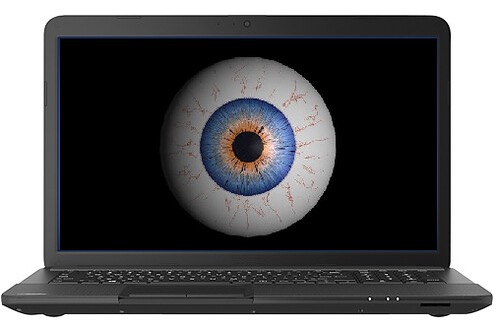
The main theme covered in the film is the surveillance operations by the NSA, a US government security agency. The film reveals how the NSA intercepts billions of communications in the US and other places worldwide. According to the film, immediately after the 9/11 attacks, the US Congress passed the Patriot Act, which gave security authorities the right to monitor the communication of suspicious individuals. However, NSA decided to monitor and intercept the communications of everyone in the country. In this case, every communication made through technological means, including phone calls, internet searches, chats, e-mails, and SMSs, could be monitored and intercepted by the NSA. This went beyond the country as NSA was able to cooperate with other governments in the surveillance operations. For example, it is revealed in the film that the NSA spied on even the mobile phone of German Chancellor Angela Merkel. Citing the Parliament of the Commonwealth of Australia, Thompson et al. (2020) point out that “online surveillance of citizens (as with offline surveillance) is generally justified for its role in the prosecution and prevention of crime and the prevention of activities that threaten national security” (p. 1). While that could be the case, the members of the public are often against such measures. As reported by Thompson et al. (2020), immediately after the leaks by Snowden, there was a significant increase in the number of internet searches regarding how to protect one’s privacy online. Therefore, while people may not prefer to be surveilled, the government, as can be seen in the film, can secretly monitor and intercept one’s interactions on technological devices. As revealed in the film, through surveillance, the ability of the people to express themselves fully is curtailed.
CitizenFour Reveals an Imbalance of Power between the Government and Citizens
The film also reveals that there is an imbalance of power between government authorities and citizens. The film reveals how apart from technological devices, credit card transactions are monitored and can determine everything one does and everywhere one goes. With these acts being done covertly, it shows how the state has immense power over its people. This means that people do not have political liberty. Political liberty, in this case, means “the right to express oneself freely and effectually regarding the conduct, makeup, and principles of the government under which one lives” (Dictionary.com, n.d.). If one has a dissenting opinion about government activities, it is deducible that they would not be willing to share it with others due to the surveillance. As Snowden puts it in the film, “it comes down to state power versus peoples’ ability to meaningfully oppose that power.” Given the huge state power that has been elevated by surveillance, the ability of people to oppose it appears to be non-existent meaningfully. Therefore, the imbalance of power between the state and citizens is a key theme portrayed in the film. Even those who reveal some important violations like Snowden are not considered patriots but traitors. According to Couldry (2017), the normalization of surveillance by state institutions is a subtle threat to democracy. While democracy is often thought of as a form of government where power is vested in the people, the film reveals how citizens are at the mercy of the government.
There is no Privacy
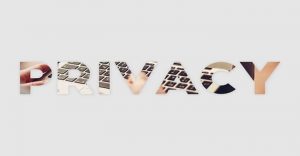
One of the most debatable topics in the current era of the internet is privacy, and it is evident throughout the film that surveillance directly curtails it. It is revealed in the film that people nowadays behave with the expectation that they’re being watched.
The film features Jacob Appelbaum in a meeting in New York, where he asks how many of the audience members feel they are under surveillance. Almost everyone in the room raises their hands, clearly indicating that many people feel they do not have privacy. According to Picard and Pickard (2017), one of the principles for contemporary policymaking is “protecting personal privacy and data security of users from invasive corporate and state surveillance or misuse” (p.25). This principle seeks to protect the solitude and dignity of people from the undue intrusion of personal information. The report by Picard and Pickard (2017) sought to guide policymaking in contemporary democracies. As one of the countries, acclaimed to be more democratic, the US should be at the forefront in protecting the privacy of its citizens. However, as revealed in the film, it is the country leading into the privacy intrusion of its citizens via the internet. With every action of individuals being monitored, the room for intellectual questioning is non-existent. According to Kelty (2014), the internet was “the understood as an inherent “liberating” tool of personal, political, and innovative expression” (198). However, with the intrusion of privacy that characterizes modern countries, as shown in the film, the internet can no longer be considered a personal or political expression tool. Throughout the film, the communication between Snowden and Poitras is always encrypted. Ordinary citizens cannot do the high level of encryption characterizing the communication between these two individuals. Therefore, the freedom of expression is significantly hampered by the intrusion of privacy as a result of the surveillance by governments. The freedom of expression that constitutions of many countries seek to promote can be a myth because behind the scenes. Governments are engaging in actions that interfere with the right to privacy.
Involvement of Large Internet Companies
Another important theme seen in the movie is the participation of large internet and telecommunication companies in the surveillance programs.
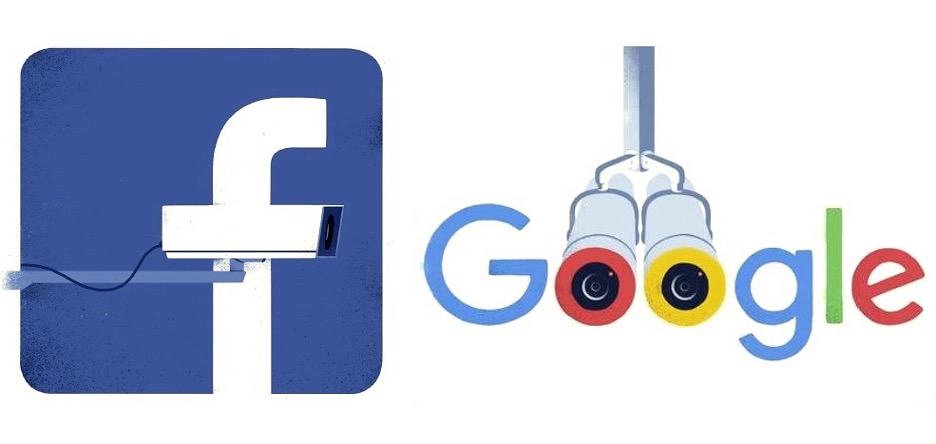
The film reveals that NSA taps into the servers of major technology companies like Verizon, Apple, Google, Facebook, Yahoo, Skype, and Microsoft. These companies are among the largest globally, and they hold enormous power, particularly due to the data they control. Popiel (2018) noted that the large tech companies insist on the self-regulation of data collected from users as complying with governments’ requests causes a PR nightmare. However, as revealed in the film, the NSA taps into the data stores of these large companies. Therefore, it appears that the surveillance is carried out with the knowledge of these companies that hold huge amounts of user data. With the large amounts of data at the government’s disposal, its ability to monitor and document every move of its citizens is elevated. Furthermore, Popiel (2018) revealed that these large tech companies engage in government lobbying efforts to meet their organizational interests. There is thus no limit to what these tech companies can do to meet their interests. Therefore, their participation in surveillance could be deliberate given they have interests to protect.
Wrap Up: Freedom of Expression
The film by Poitras reveals covert operations by the NSA, which fuels the discussion of freedom of expression in today’s internet age. From the revelations made in the film, it is clear that citizens of the world, particularly those from the US, are being monitored constantly. As revealed in the film, digital devices and credit card transactions that the NSA monitors can help track one’s activities. The interception of communications by the US agency casts doubts on whether freedom of expression exists in the modern world. The inhibition of political liberty through surveillance hampers democracy. Unfortunately, such occurrence takes place in a country considered to be a leader in democracy. With the privacy intrusions and participation of major tech companies as revealed in the film, it is arguable that freedom of expression is non-existent in today’s world, where technological devices characterize how people communicate.
References
Couldry, N. (2017). Surveillance-democracy. Journal of Information Technology & Politics, 14(2), 182-188. https://doi.org/10.1080/19331681.2017.1309310
Dictionary.com. (n.d.). Political liberty. Retrieved from Dictionary.com: https://www.dictionary.com/browse/political-liberty
Kelty, C. M. (2014). The Fog of Freedom. In T. Gillespie, P. J. Boczkowski, & K. A. Foot, Media Technologies: Essays on Communication, Materiality, and Society (pp. 195-220). MIT Press. https://doi.org/10.7551/mitpress/9780262525374.003.0010
Picard, R. G., & Pickard, V. (2017). Essential Principles for Contemporary Media and Communications Policymaking. Reuters Institute for the Study of Journalism.
Popiel, P. (2018). The Tech Lobby: Tracing the Contours of New Media Elite Lobbying Power. Communication Culture & Critique, 11, 566–585. https://doi.org/10.1093/ccc/tcy027
Thompson, N., McGill, T., Bunn, A., & Alexander, R. (2020). Cultural factors and the role of privacy concerns in acceptance of government surveillance. Journal of the Association for Information Science and Technology, 71(9), 1-14. https://doi.org/10.1002/asi.24372

